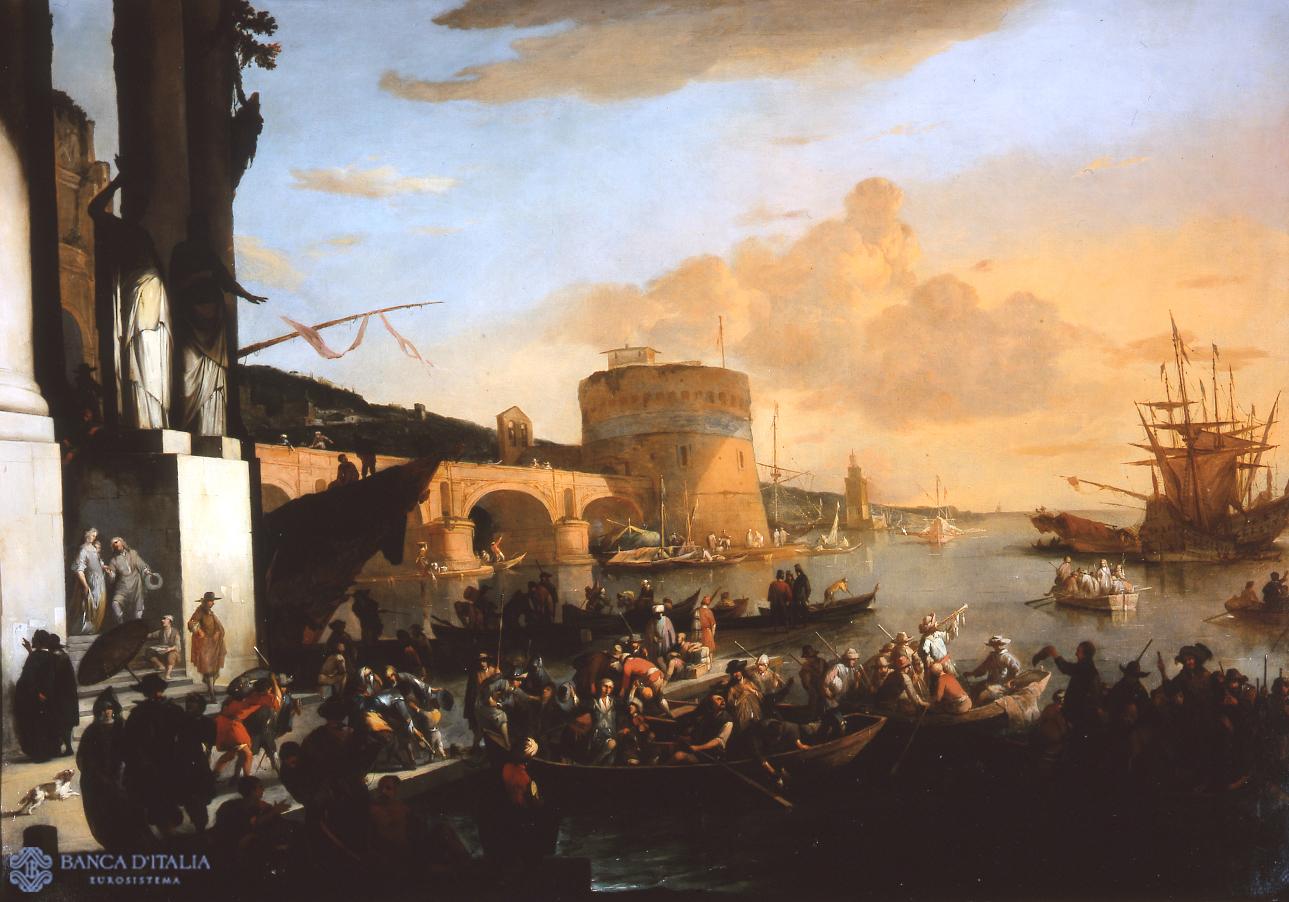The scene is crowded; in the foreground, boats loaded with sailors are tying up at the quayside of an imaginary port. The atmosphere is very Mediterranean and there is an allusion to trade with the East, evidenced by the aspect and clothing of the seated figures in the left-hand corner. On the right, two large sailing ships have dropped anchor further out at sea, while the left side of the painting is dominated by an imposing fortified tower and bridge linking it to the shore.
The painting is typical of Johannes Lingelbach’s Italian period and contains clear allusions to monuments he admired in Rome. The bridge and tower are clearly references to Castel Sant’Angelo and its bridge across the Tiber, although the shape of the pylons and the arches calls to mind the Ponte Rotto. The massive columns, statues of robed figures and ruins of an ancient arch on the left are also based on Roman monuments, which the artist often depicted. They are bathed in a cold light reminiscent of the work of Viviano Codazzi, while the rest of the scene is built on warmer tones, heralding the sun-drenched landscapes of Gaspar van Wittel who drew inspiration from Lingelbach’s work.
Johannes Lingelbach, Capriccio con porto mediterraneo
Capriccio with Mediterranean Port
17th century AD
Painting
Landscape

Artist
Date
1674
Material and technique
Oil on canvas
Measurements
112 x 160 cm
Compiler
Alessandro Zuccari
